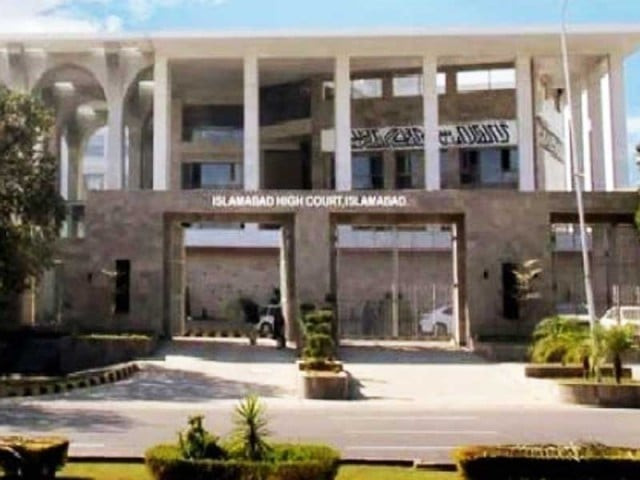Appointment process for ATIR members to be transparent: IHC
Court observes no manner has been prescribed under the relevant laws

Observing the absence of a prescribed procedure under the relevant laws regarding the appointment of members to the Appellate Tribunal Inland Revenue (ATIR), the Islamabad High Court (IHC) has stressed the necessity for a competitive and transparent appointment process, aligning with guidelines set forth by the Supreme Court.
Sources familiar with the matter revealed that the prime minister, via official notification, has appointed judicial members of BS-21 to the ATIR. However, this move sparked controversy, prompting legal action.
Mudassir Malik, a member of the Hazara Bar Association, filed a petition urging the IHC to nullify these appointments, citing them as illegal, mala fide, unlawful, ultra vires, and unconstitutional. Respondents in the petition include the PM, the Ministry of Law, the Federal Public Service Commission (FPSC), judicial members, and the Establishment Division.
In its order, the IHC stated that the key question before the court was the process to be followed for purposes of appointment of members of the tribunal, highlighting that the law ministry in its comments has appended a copy of the ATIR (Appointment of Chairperson and Members) Rules, 2020).
The rules, however, do not prescribe the process or the manner in which appointments are to be made. It merely states in rule 3(6) of the rules that a member shall be appointed by the prime minister in consultation with the Chief Justice of Pakistan, the court noted.
The petitioner has requested the IHC to cancel the notification because all such appointments had been made in flagrant violations of the rules and regulations applicable to such employment.
“It is in direct violation of Article 240 of the Constitution read with law governing Appointment on Contract Basis under Civil Establishment Code and intentional contempt of binding verdicts of Supreme Court in 1998 SCMR 2190 & 2013 SCMR 1140, Pakistan Electronic Media Authority vs ARY (2022 SCP 268), 2013 SCMR 1159, Mushtaq Mohal v. Lahore High Court (1997 SCMR 1043) and Abdul Jabbar (1996 SCMR 1349).”
Income Tax Ordinance, 2001, states that Members of the ATIR shall be appointed “in such manner as the Prime Minister may prescribe by Rules”.
The IHC observed that there seems to be no specified procedure for the appointment of the tribunal.
Consequently, the court raised the pertinent query regarding the establishment of an acceptable, competitive, and transparent process for appointing tribunal members, particularly in light of guidelines outlined by the Supreme Court in various precedents, such as Syed Mubashir Jaffri (2014 SCMR 949) and Muhammad Ashraf Tiwana (2013 SCMR 1159).



















COMMENTS
Comments are moderated and generally will be posted if they are on-topic and not abusive.
For more information, please see our Comments FAQ